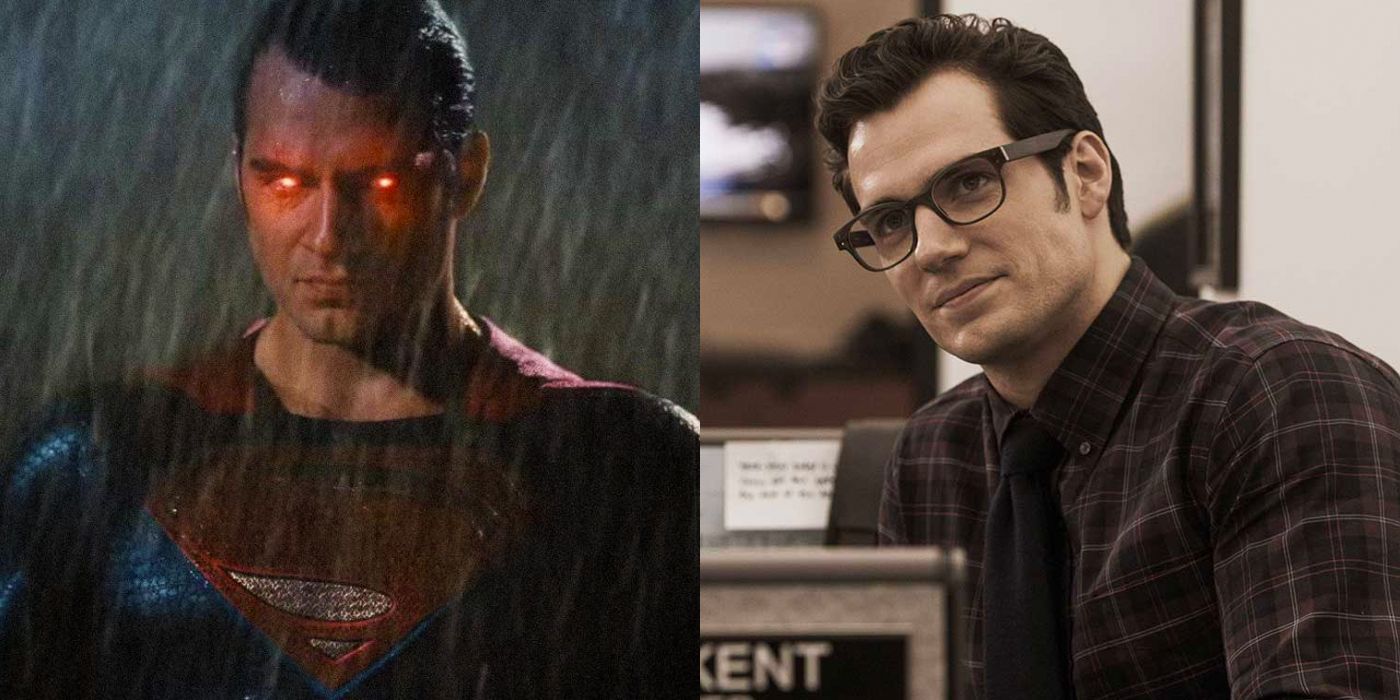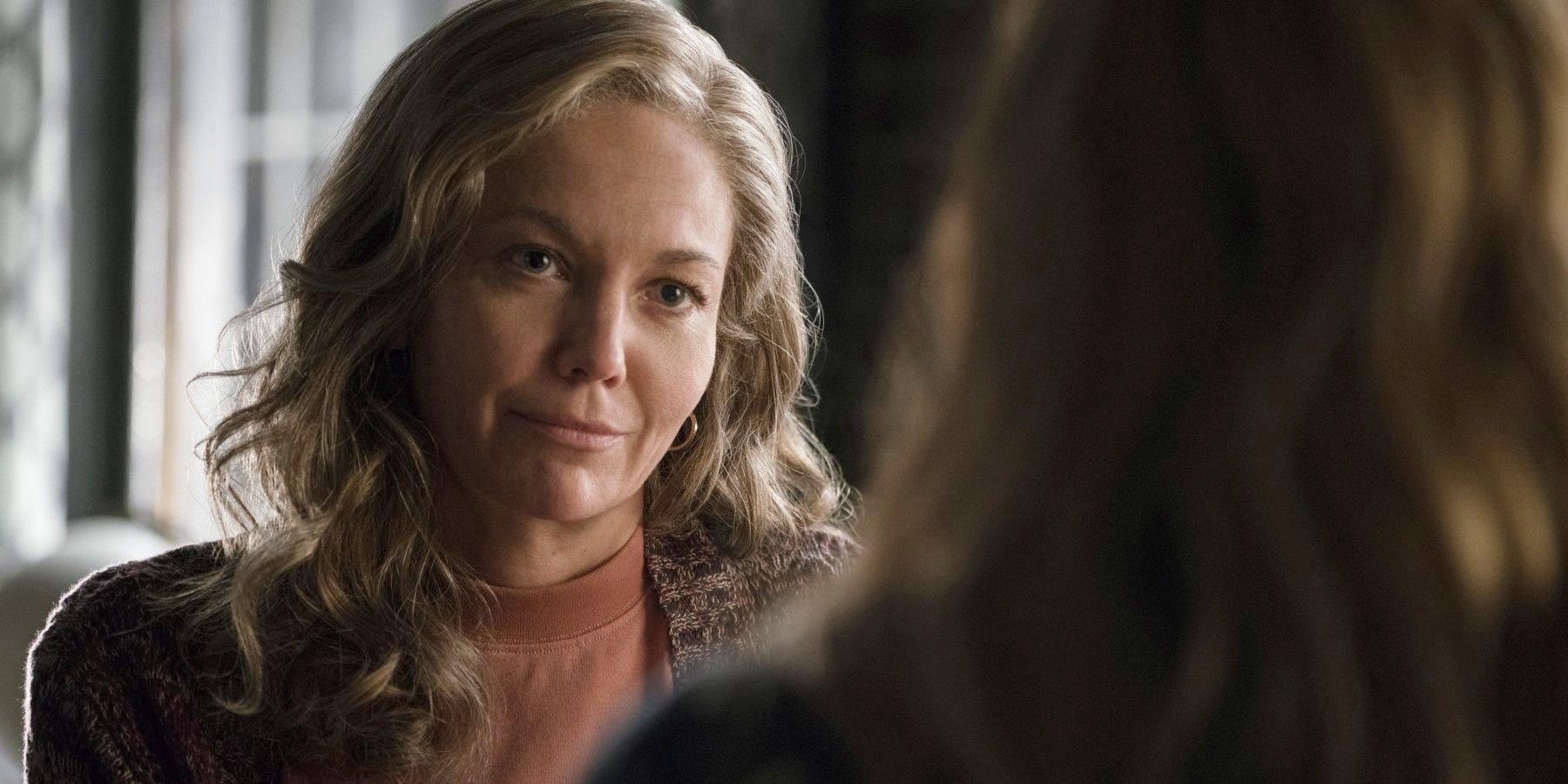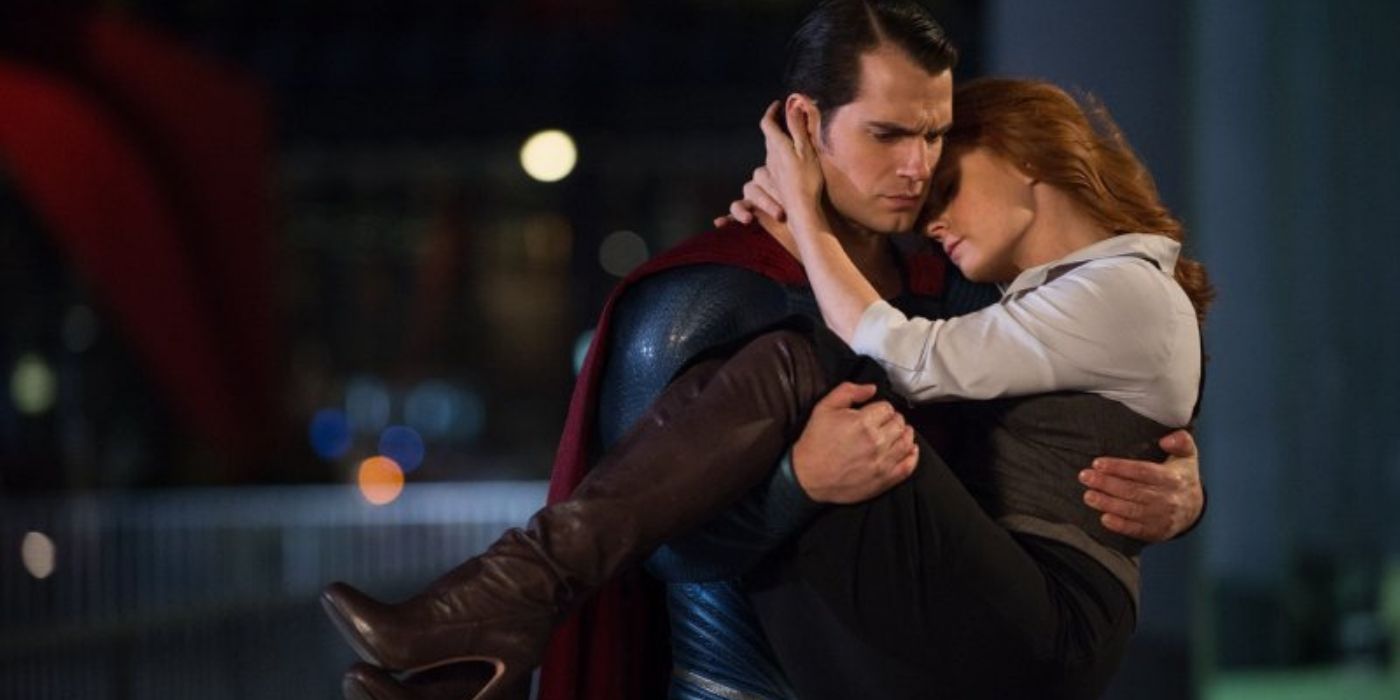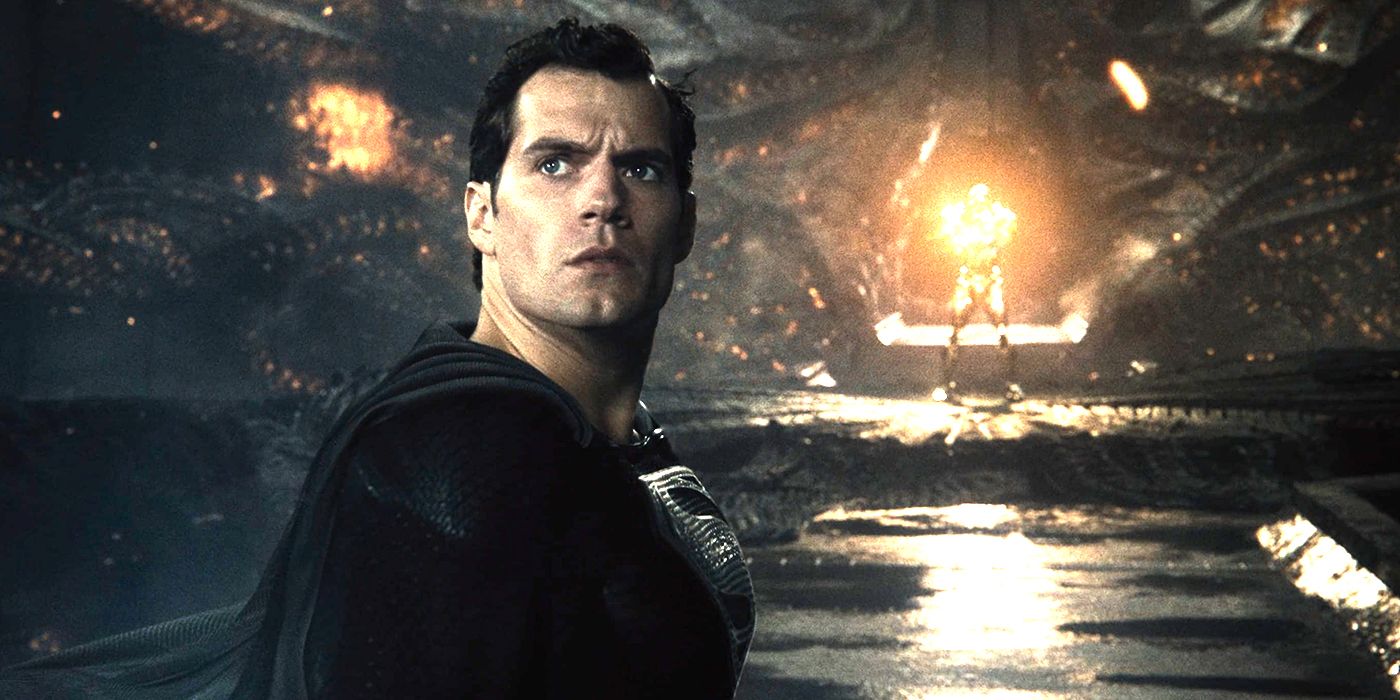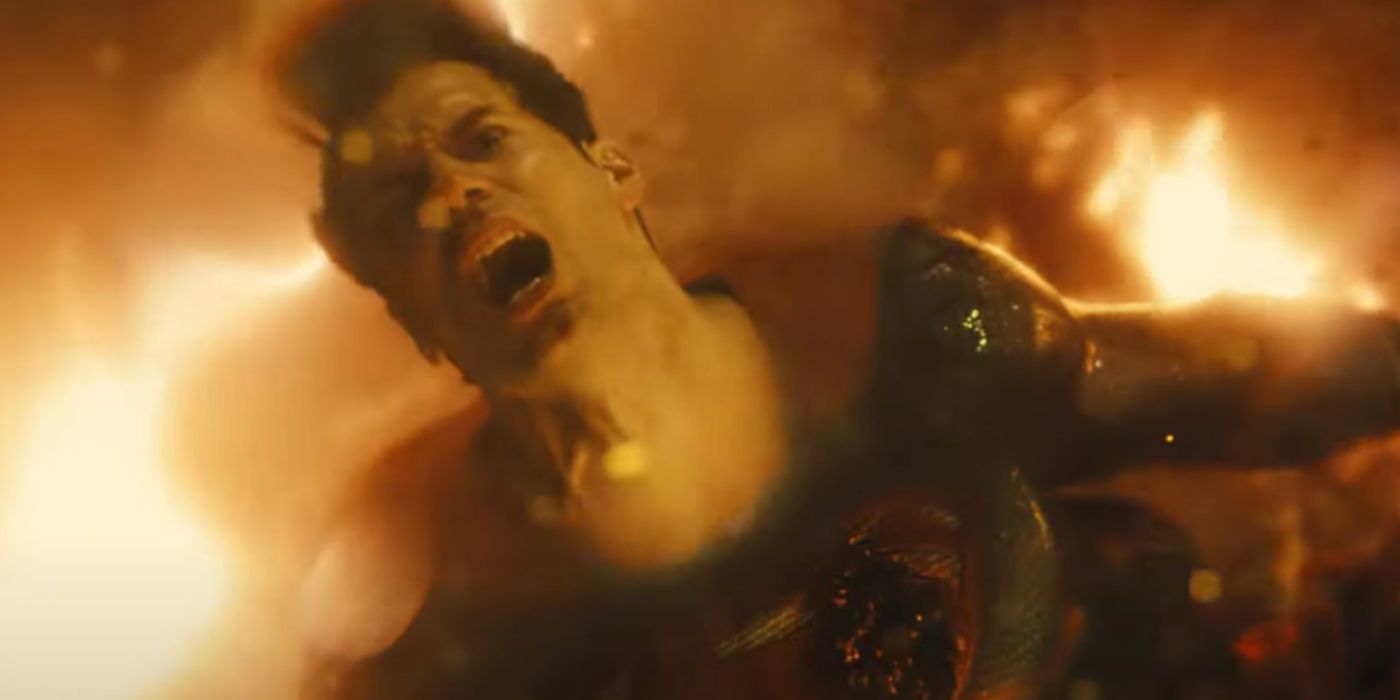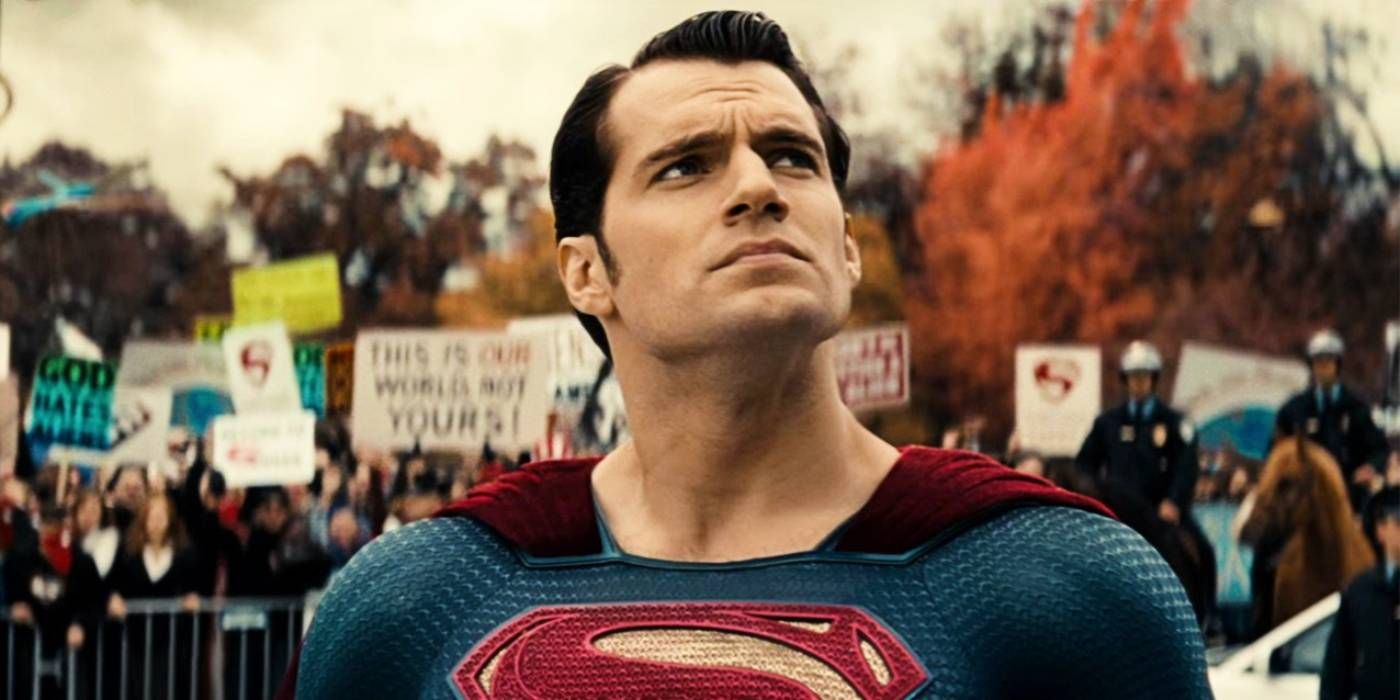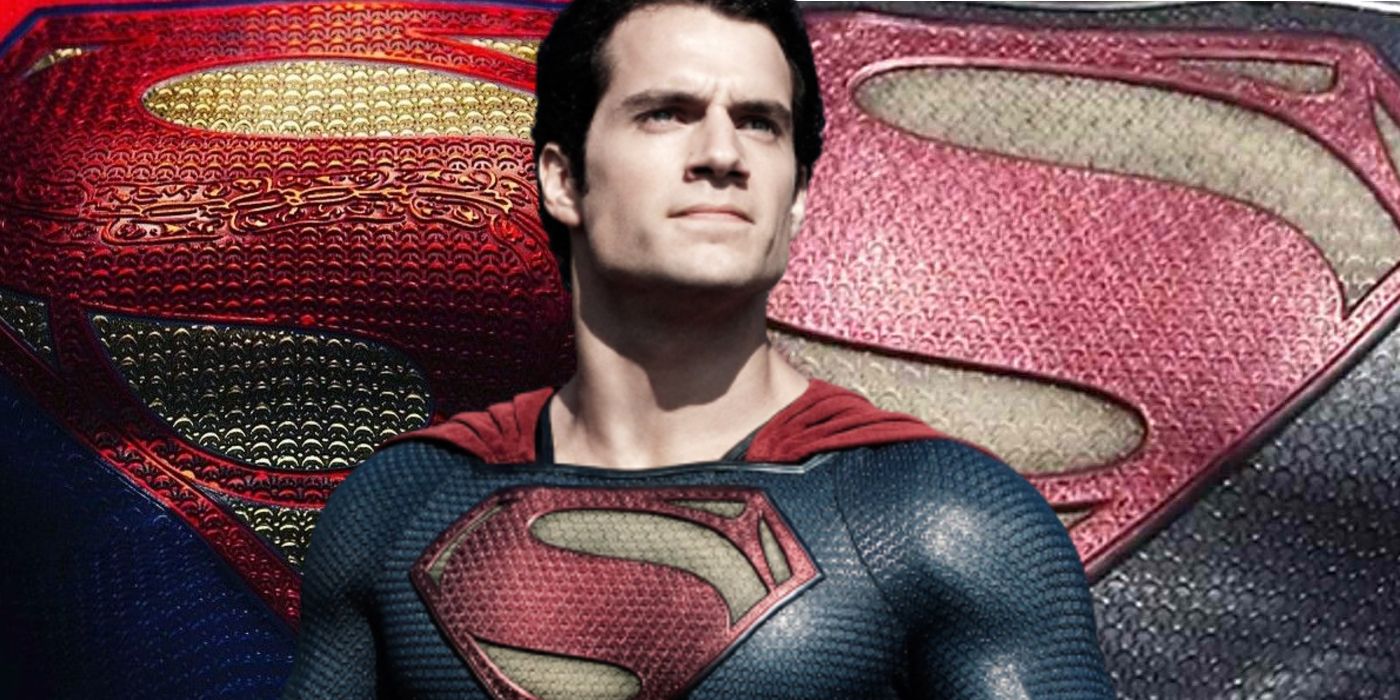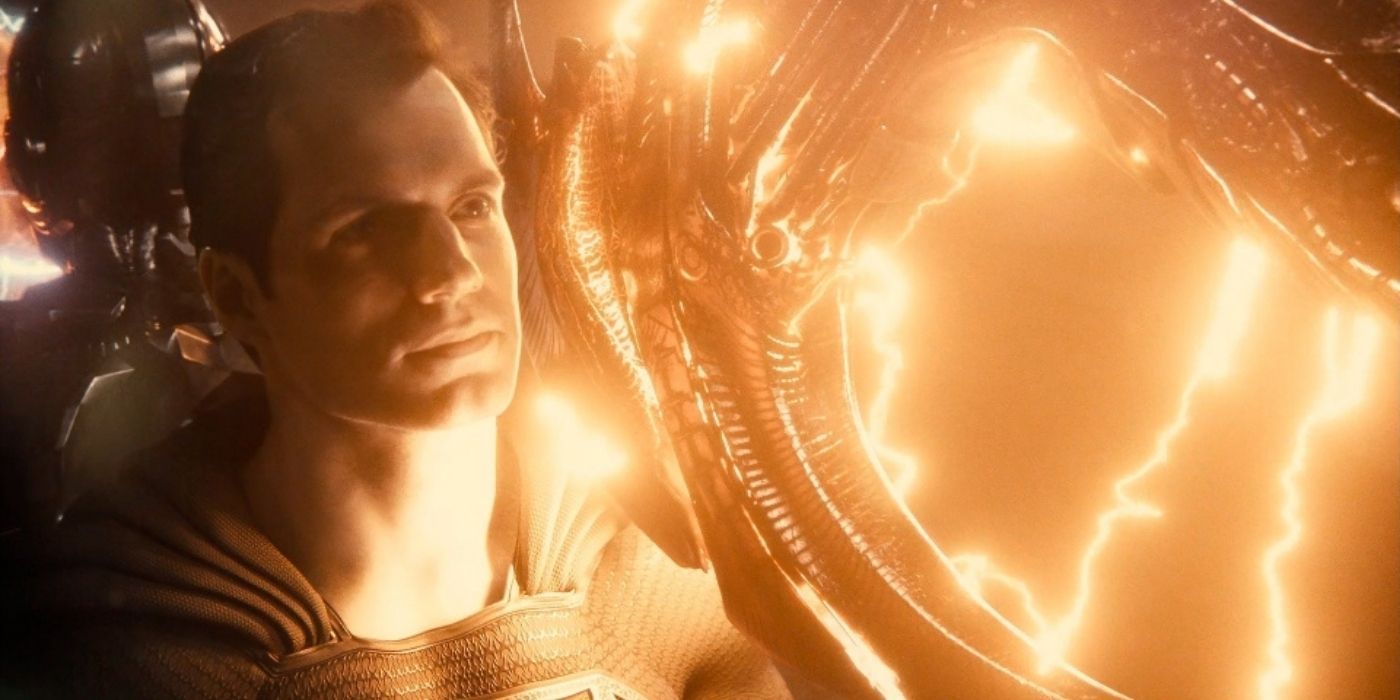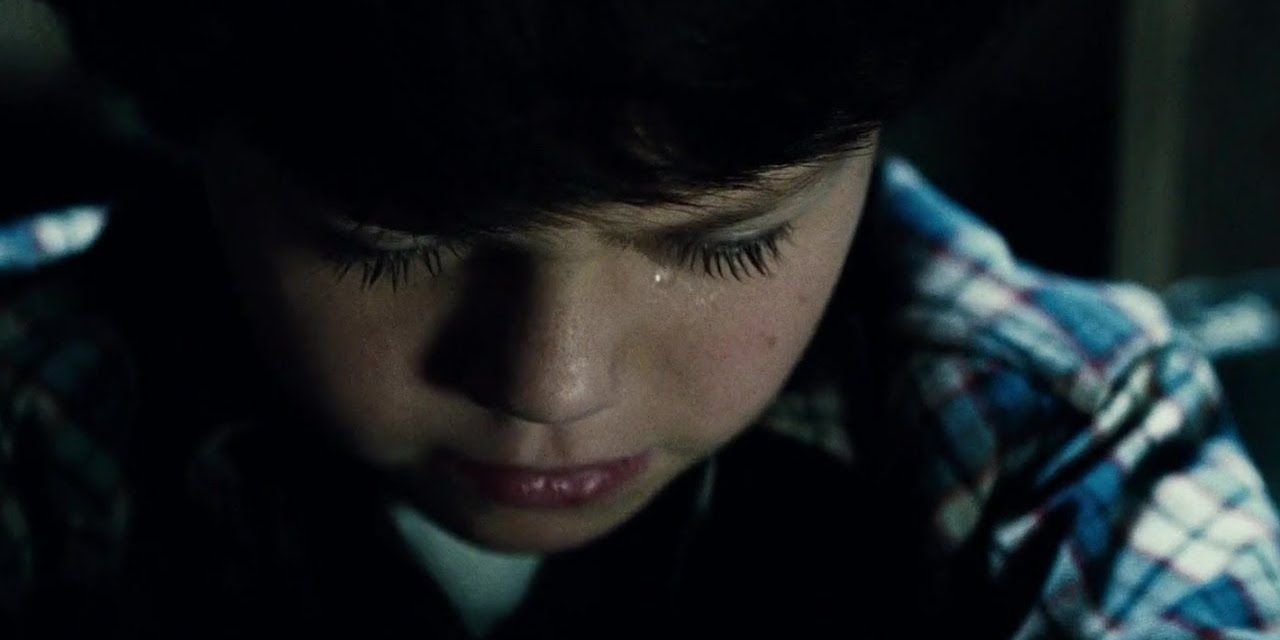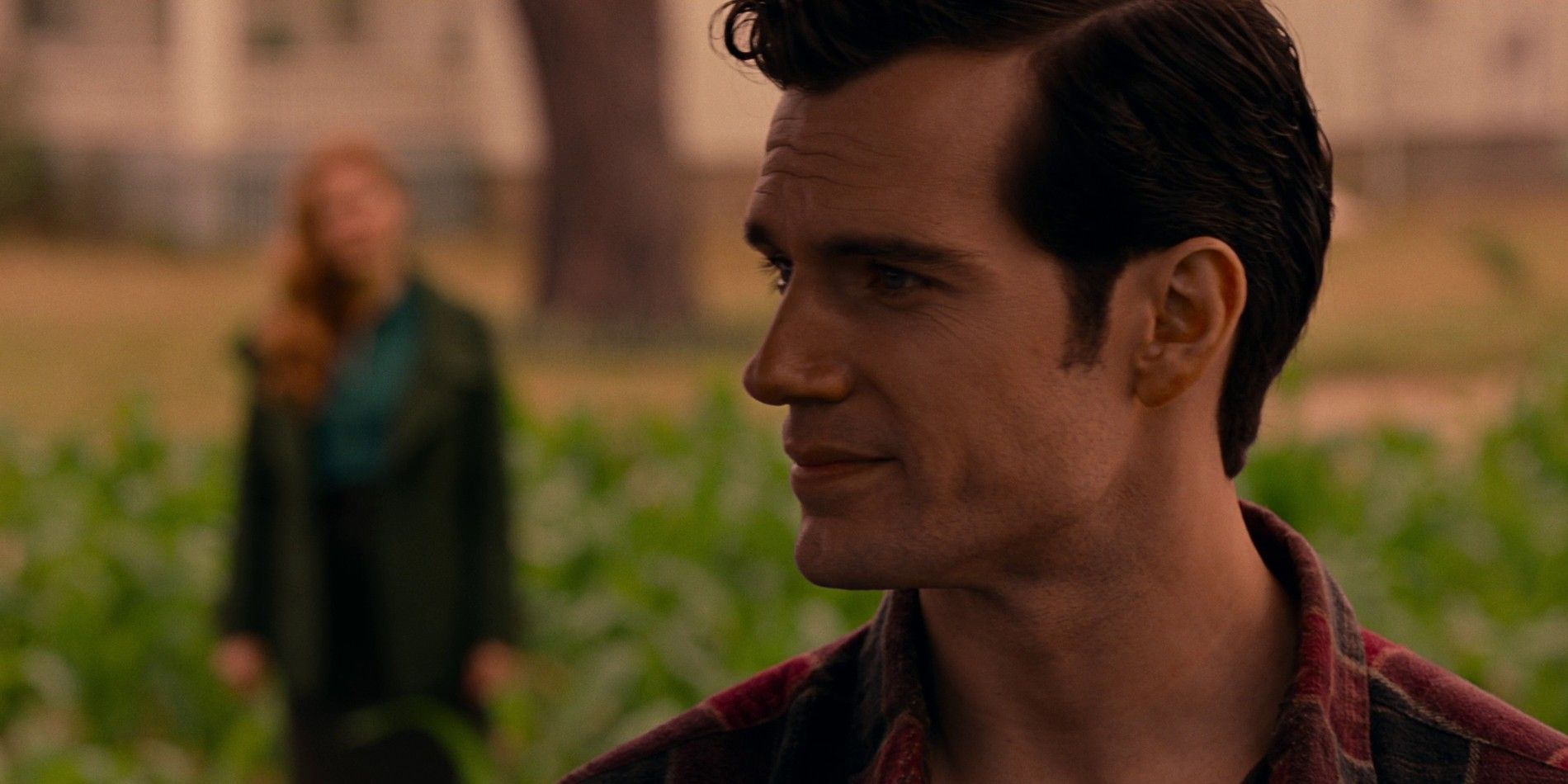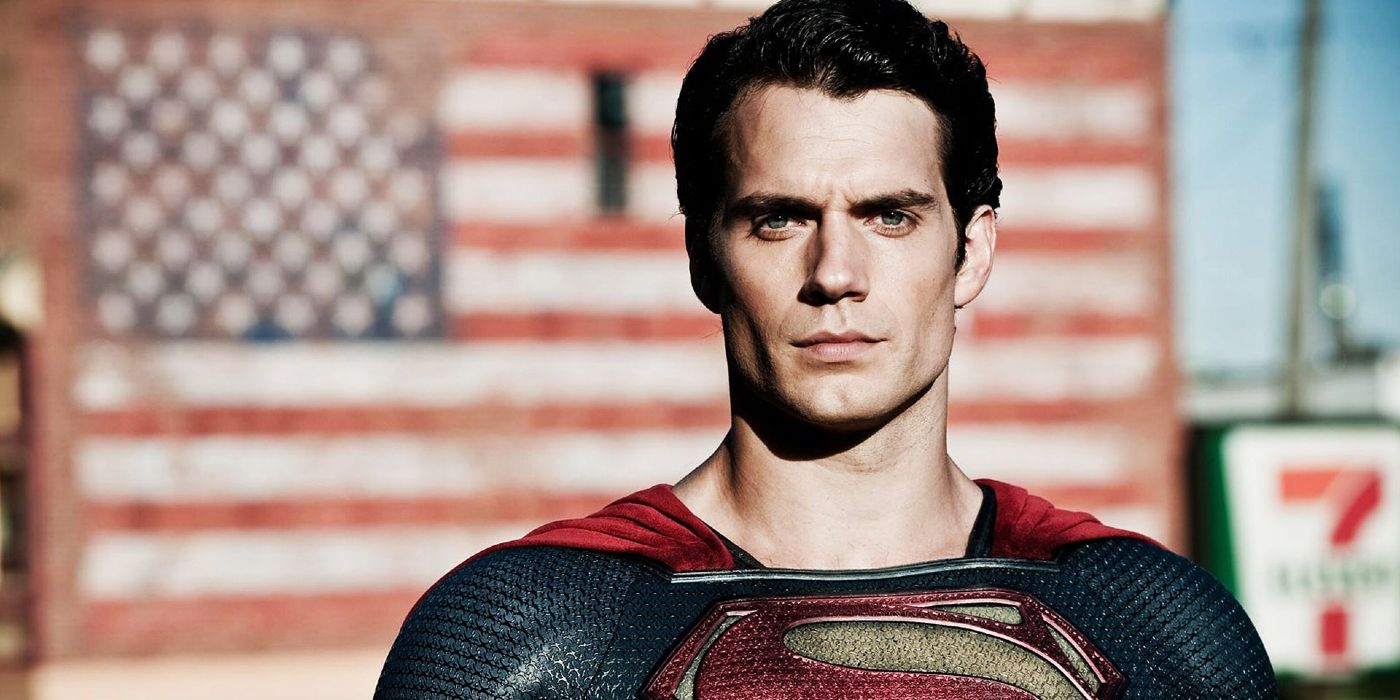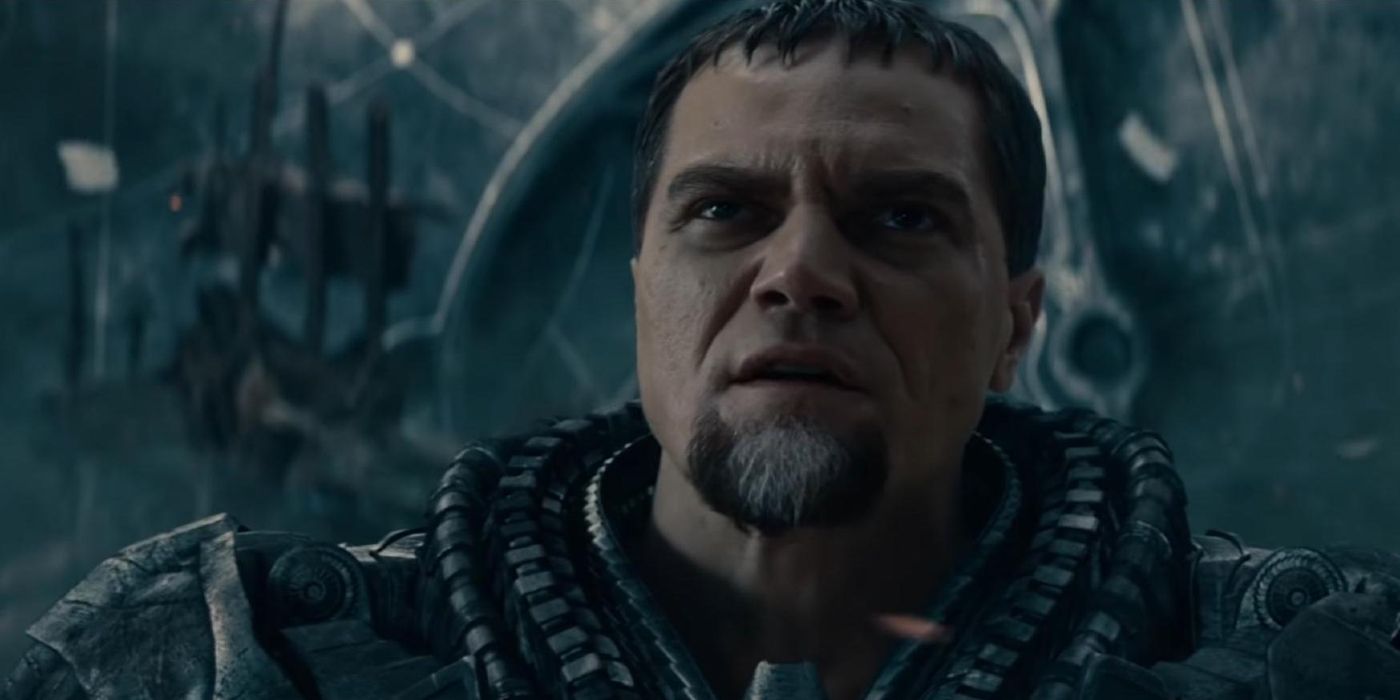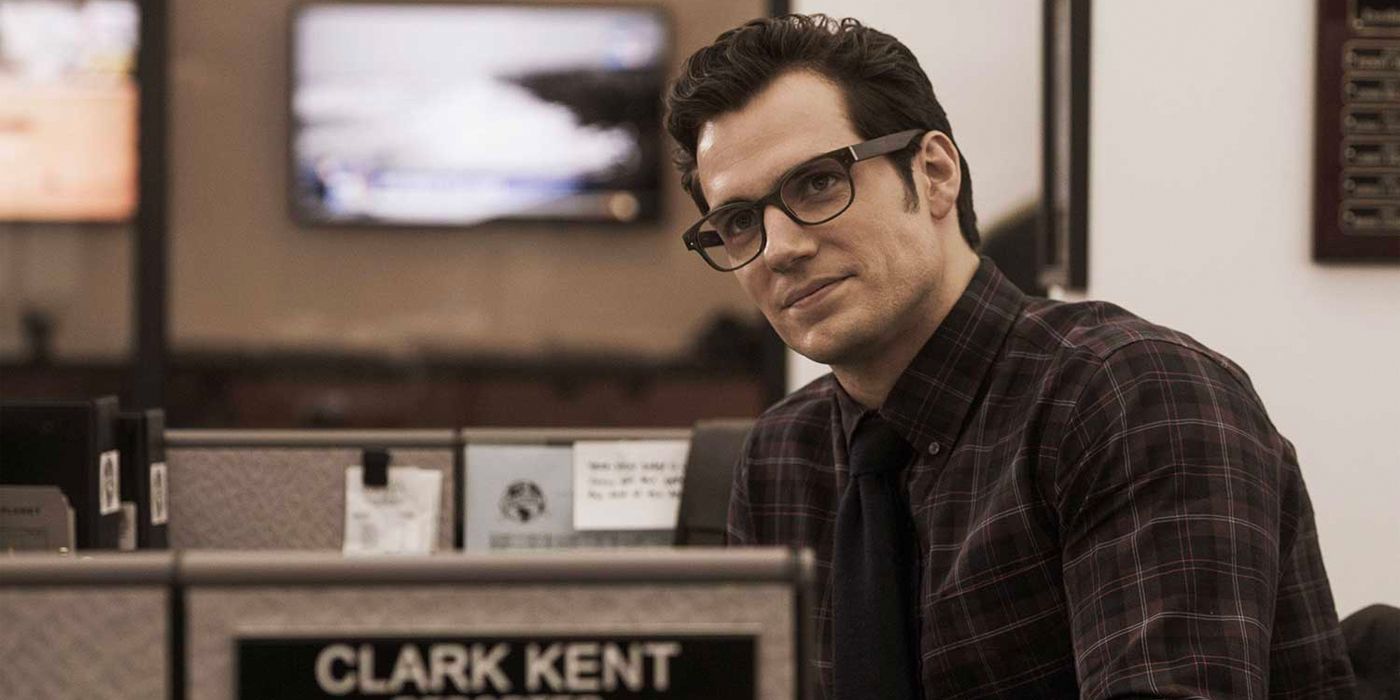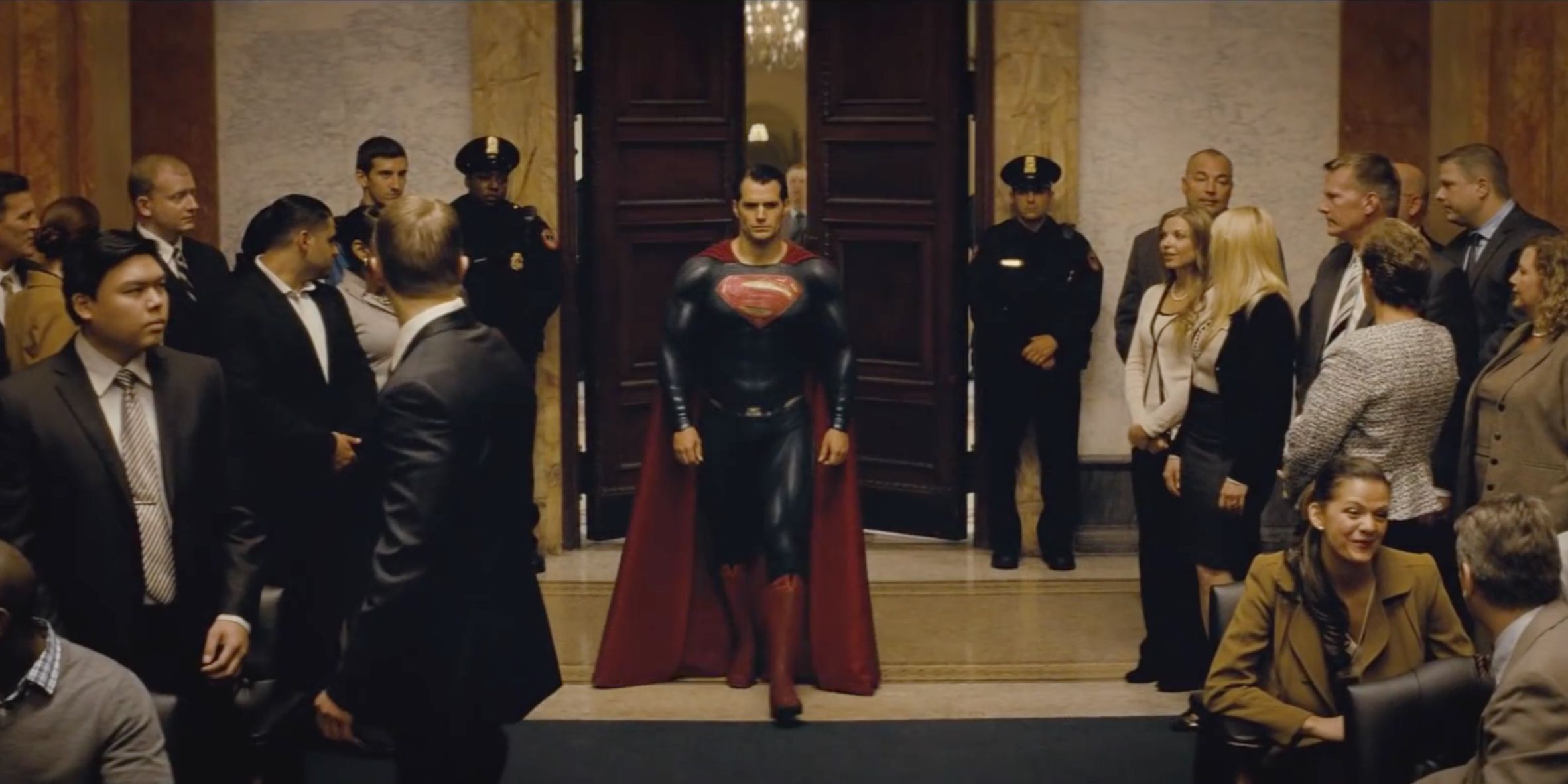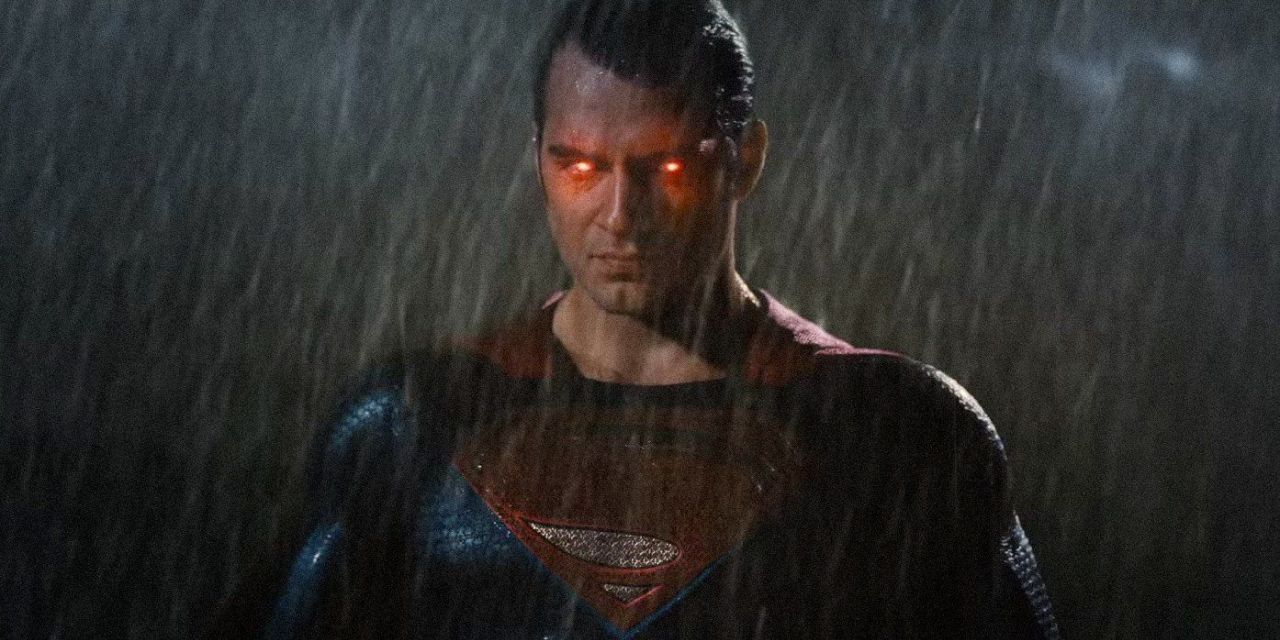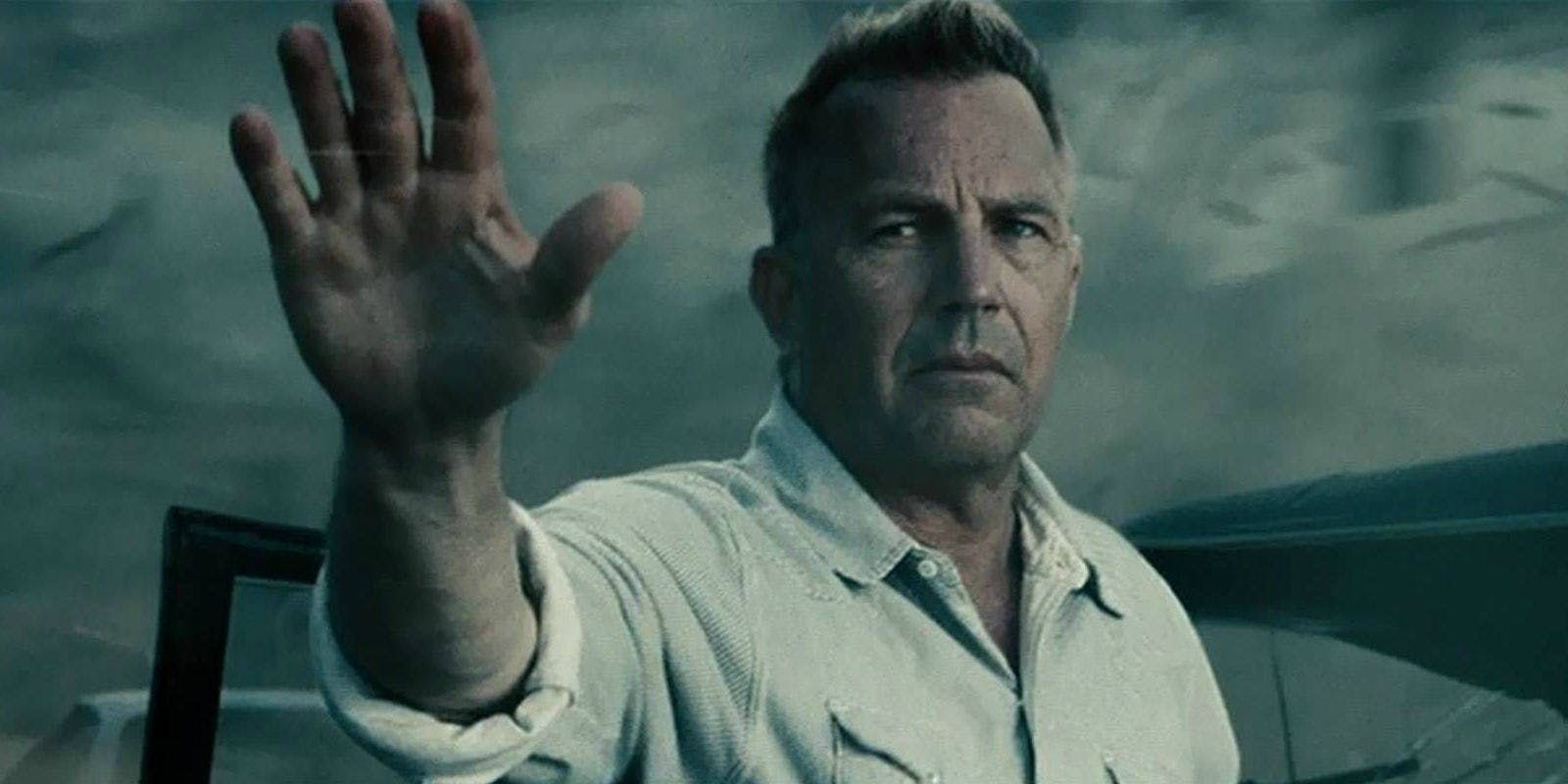Read update
- Henry Cavill recently made his long-awaited return to the role that made him a star in a cameo during Black Adam. Logically, fans of his take on the Last Son of Krypton are eagerly awaiting a solo Superman project as a follow-up to 2013’s Man of Steel. Because while the Snyderverse remains divisive among DC fans, Cavill’s portrayal of Superman is still a highlight of the struggling DCEU.
No single version of Superman represents the totality of the character’s many iterations. However, under the writing of David Goyer, Chris Terrio, and Zack Snyder, Henry Cavill’s portrayal of the world’s most iconic superhero in the DCEU is an amalgam of the character’s different versions throughout his varied, eight-decade history.
These connections shared between Henry Cavill’s take and the source material add up, arguably making Cavill’s the big screen depiction of Superman the one that most resembles his comic book counterparts and most reverently represents what it means to be the Man of Steel. From nods to his earliest days in the role of Clark Kent, to his making the world a better place, to how he fights various enemies, Cavill’s Superman covers the bases.
Updated on November 23, 2022, by David Caballero:
Henry Cavill recently made his long-awaited return to the role that made him a star in a cameo during Black Adam. Logically, fans of his take on the Last Son of Krypton are eagerly awaiting a solo Superman project as a follow-up to 2013’s Man of Steel. Because while the Snyderverse remains divisive among DC fans, Cavill’s portrayal of Superman is still a highlight of the struggling DCEU.
Superman Is A Mama’s Boy
As the ultimate boy scout, Superman is a goody two shoes who loves his mother. Clark’s bond with Martha Kent is among the strongest in comic books; unlike other heroes who have strained relationships with their parents, Clark shares a wholesome and enthusiastic bond with his mother, and he isn’t afraid to show it.
Despite their gloomier tone, the DCEU films excel at portraying Superman as a mama’s boy. He famously loses it when he sees Zod attacking his mother and is willing to fight Batman to save her from Lex. He might be the Man of Steel, but his heart melts in his beloved mother’s presence.
Superman Loves Lois Lane More Than Anything
Superman’s relationship with Lois Lane is among the most iconic in comic book history. They are the first couple of the DCU against which critics and fans measure most other relationships. Lois and Clark are an institution in the comic books, and no other romance comes close to them.
Henry Cavill and Amy Adams don’t exactly have electrifying chemistry, but they do a good job selling Lois and Clark’s bond; indeed, the two are among the most popular DCEU ships. Clark’s devotion to Lois is apparent in every action he makes, which is great because an intrepid reporter like Lois often gets in dangerous and potentially deadly trouble.
Superman Struggles To Reconcile His Two Identities
A crucial part of Superman’s characterization is his struggle to balance his two identities. There’s Kal-El, the mighty man-god who acts as Earth’s savior, and Clark Kent, the Texas farm boy who longs for stability and happiness next to the woman he loves.
The DCEU does a brilliant job depicting this dichotomy, especially in Man of Steel, as Clark questions his identity and purpose. Throughout his journey in the DCEU, Clark struggles with his duty to the planet and his responsibility to the ones he loves most. Cavill plays Superman as someone who’s perpetually uncomfortable in his skin, longing for a sense of normalcy that will forever elude him.
Superman Sacrifices For The Greater Good
Arguably Superman’s most defining quality is his selflessness. The Last Son of Krypton will always put others before himself; he will always do his best to protect the world he loves, even if it kills him. His duty is dangerous and all-consuming, but he never backs away from it.
Henry Cavill nails most of Superman’s main traits, despite his overly-stoic take on the character. Indeed, the DCEU’s brooding Superman might be serious and unapproachable, but he remains selfless to a fault. He famously dies during his battle with Doomsday and immediately returns to the fight after he returns to life. Superman will always put his well-being second, especially if his sacrifice will save millions of others.
Superman Is Reluctant To Wield Power
Superman is synonymous with power, but he never asked for it. In fact, he has expressed willingness to abandon it numerous times. Whatever Happened to the Man of Tomorrow? — arguably his best comic book storyline — even sees him ending his days in peace after being de-powered.
The DCEU’s Superman behaves similarly. He hesitates to go public with his powers because of what it would mean to everyone. Once he does, he mistrusts the world’s governments and shies away from the spotlight. Superman doesn’t want power, which is why he’s such a great man to wield it. It’s a shame none of the Justice League films showed him as the team’s leader, because that’s the role he was born to do.
Superman’s Costume Is Iconic
A problem faced by movie costume designers since the dawn of the superhero genre on the big screen is the way traditional superhero spandex is depicted in comics. Real tights don’t conform to human anatomy with the precision they do in comic illustrations. Costume designer Michael Wilkinson found a way around this issue for Man of Steel, Cavill’s first outing as Superman.
By making the material of Superman’s suit slightly transparent and using a black muscle suit underneath with chrome highlights for the abs, biceps, etc., the result creates the illusion of fabric confirming the character’s musculature accurately. This effect was amplified in proceeding DCEU films. Never before had a live-action Superman looked so dauntingly accurate in his physique.
Superman Wields Unparalleled Power
The comics depict Kryptonians as capable of incredible speed and power, tearing through concrete like cardboard. Fights between Superman and other powerful DC characters often leave untold destruction in their wake. Fans had long wanted to see this kind of spectacle depicted in live-action, and many criticized Superman Returns (2006) for lacking it.
Zack Snyder’s three Superman-centered films depict a level of Kryptonian action not seen anywhere else outside of the comics, with the only exception perhaps being animated material. Clark’s fight with Faora and Nam’Ek in Smallville and his final confrontation with General Zod are arguably the best sequences ever crafted believably, showcasing the character’s abilities to their fullest.
Superman Reckons With Childhood Angst
Young Clark always struggled with feelings of alienation. In Mark Waid’s Superman: Birthright (2003), these feelings led him to become friends with a young Lex Luthor, to whom he could relate at the time. The CW’s Smallville demonstrated this angst beautifully in its 10-year journey following high-school-student Clark Kent as he matured into Superman.
Snyderverse Clark Kent was bullied as a child for being different and unusual. Gifted with amazing powers, he had to learn great restraint to keep his otherworldly secret under wraps. One of the most emotional moments in Man of Steel references Superman: Secret Origin, in which young Clark comes to grips with learning the truth of his origins with help from his adoptive father.
Superman Is More Human Than Kryptonian
The Silver Age of Superman’s history ended around 1986 following the Crisis on Infinite Earths event. Later that year, John Byrne rebooted Superman with some adjustments in The Man of Steel #1, including being less patriotic about his Kryptonian roots. The character was tied to humanity and Earth in profound new ways.
Man of Steel embraces Superman’s human side like no other film has, from how comfortable he is living a normal human lifestyle outside the blue costume, to his symbolic connection to the Earth, to his denying Krypton a chance at rebirth just to keep humanity safe. What started as a quest to discover his roots became a firm declaration in Batman v Superman, and one of the quotes that define Superman’s character: “This is my world.”
Superman Makes The World A Better Place
Superman does not just save lives. He makes the world a better place with his example. Comics like All-Star Superman especially expressed this sentiment best with words echoed in Man of Steel that Superman would give the people of Earth an ideal to strive towards. On film, other than an awkward plot in Superman IV (1987), only the Snyderverse version delivers humanity the light to show the way.
After Superman sacrificed his life in BvS, there was no turmoil like in Justice League. His selfless act silenced the world’s growing prejudice and martyred him, making the world better. Batman was so inspired that he swore to be a better man, promising to defend the Earth in Superman’s stead, assembling the Justice League.
Superman Is Always Learning And Growing
Often forgotten about Superman are the lessons he learned in his earlier years, especially following Byrne’s revamp. Even in Superman’s darkest comic storylines, the character learned valuable lessons that shaped him into the ultimate superhero.
In the DCEU films, killing Zod also became the catalyst for a new respect for life. Superman’s operatic conflict with Batman taught him the value of conversation over force. Thanks to allies like Lois Lane, he develops an unwavering conviction that everyone can be a force for good. Snyder even confirmed that his plan would involve Superman transitioning from the black suit to the blue, culminating in the ultimate Superman.
Clark Kent Is A Champion of the Oppressed
When Jerry Seigel and Joe Shuster first debuted Superman in Action Comics #1 (1938), Clark Kent was not just a mild-mannered disguise. The original take on the Daily Planet journalist showed him as devoted to using the power of the press to help those who could not help themselves. In a time of upheaval and fear, Clark Kent’s fight for truth and justice made him heroic in his own right.
In Batman v Superman, Clark learns of Batman’s “one-man reign of terror” over the citizens of Gotham City. Appalled at the cruel brutality of extra-judicial violations of civil liberties, he sets out to investigate and raise awareness. Then, much like in the comics, the end of Clark’s abilities marks the beginning of Superman’s, using his solar powers to right the wrongs that a pen cannot.
Superman Deals With Political Complexity
Many of Superman’s stories have a deeply political side. He’s defended civil rights protesters from oppressive police action, had run-ins with dictatorships around the globe, and even renounced his American citizenship in Action Comics #900. Similarly, Batman v Superman exposes Superman to the world’s political realities. “On this Earth, every act is a political act,” says Andrew Sullivan during a BvS scene inspired by Alex Ross’ Superman: Peace on Earth (1998).
Indeed, Zack Snyder doesn’t shy away from political themes in his version of the character. The movie reckons with angry protesters resembling hate groups, commentary on media and interventionism, and the immigrant metaphor central to Superman’s origin story.
Superman Sometimes Displays Frightening Anger
The most iconic depictions of Superman typically involve the Man of Tomorrow showing his scary side. Often indicated by glowing red eyes, even in the most heartfelt and campy stories like All-Star Superman (2005), the character has occasionally shown that his legendary restraint has limits.
Ever the mother’s boy, nothing ignites Cavill Superman’s rage more than knowing his mother is in danger. His eyes flare red when he learns Lex Luthor kidnapped her, and he strikes a menacing visage when his patience wears thin fighting Batman. Henry Cavill flawlessly captures Superman’s rarely-seen but powerful fury.
The Kents Keep Superman Grounded
Jonathan and Martha Kent have often been there in the comics to guide and support Clark in his time of need. Even when Doomsday killed him, his grieving parents were there to remind readers of his humanity.
Henry Cavill’s Clark Kent is deeply connected to his parents. Martha Kent is a consistent presence throughout the three films, often providing motivational support for Clark when he feels down. In an encounter on a mountaintop, Clark confided in the ambiguous ghost of Jonathan Kent, connecting with his adoptive father to find faith in humanity again. Even in death, the Kents are always with Superman.

